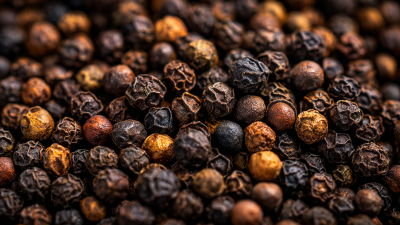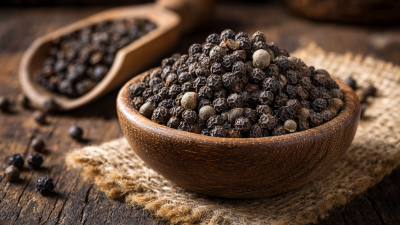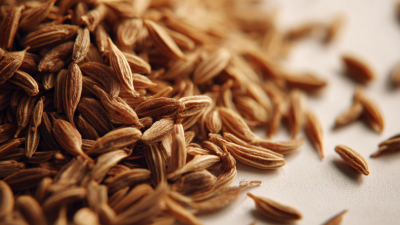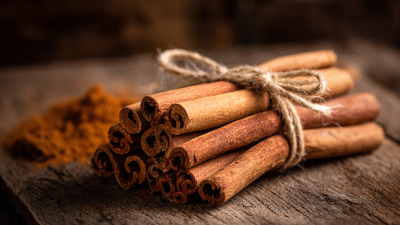When it comes to enhancing the flavor of our dishes, the choice of black pepper plays a crucial role in culinary success. According to the Global Spice Market Report, the black pepper market is projected to reach $2.3 billion by 2025, highlighting the growing demand for this essential spice in kitchens around the world. However, with a myriad of options available, choosing the Best Black Pepper can be overwhelming for both home cooks and professional chefs alike. Factors such as origin, processing methods, and flavor profiles significantly influence the quality and taste of black pepper. This guide aims to provide insights into selecting the Best Black Pepper for your cooking needs, empowering you to make informed decisions that elevate your culinary creations. By understanding the nuances of this spice, you can ensure that every dish is seasoned perfectly, bringing out the full potential of your ingredients.
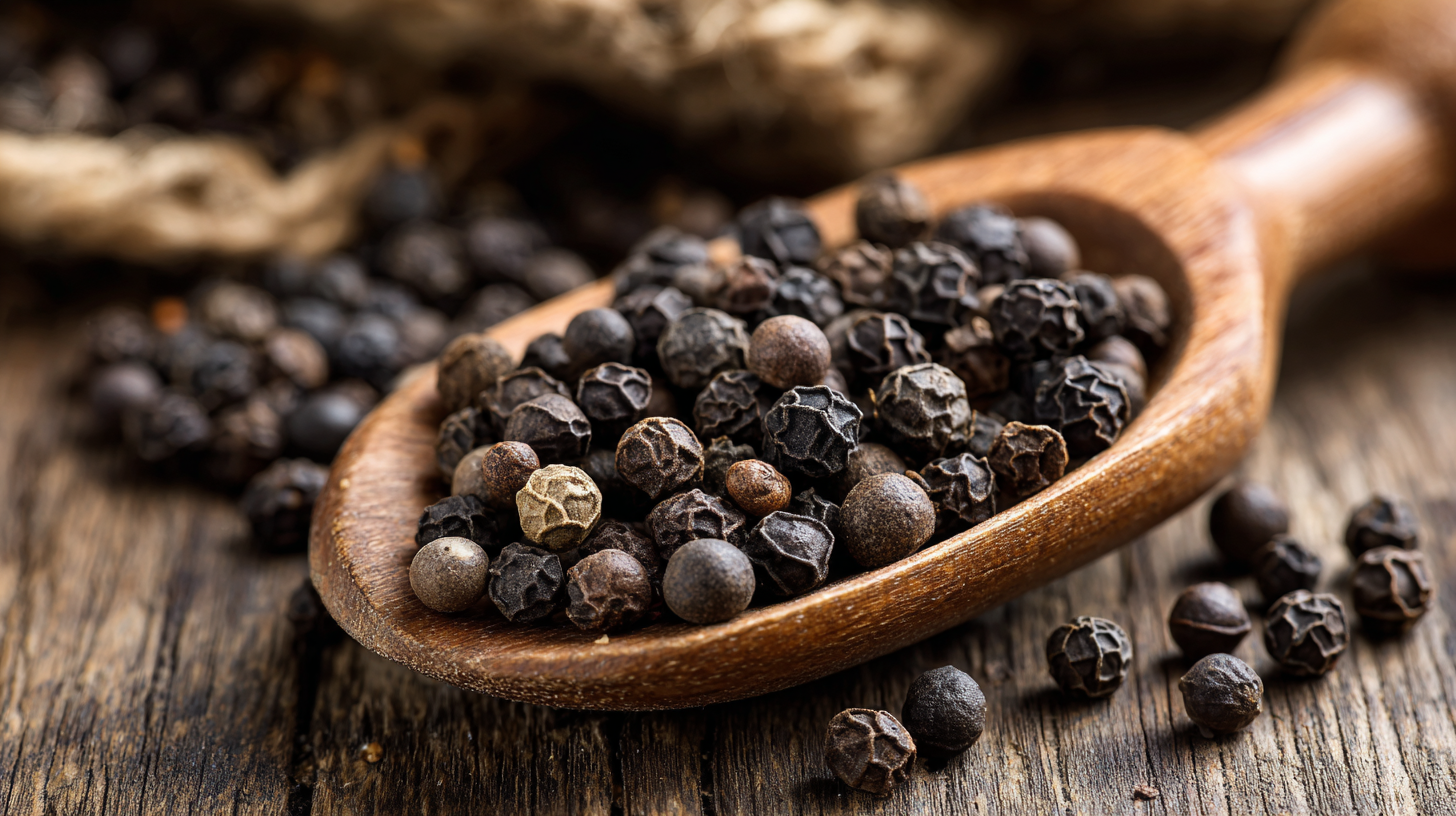
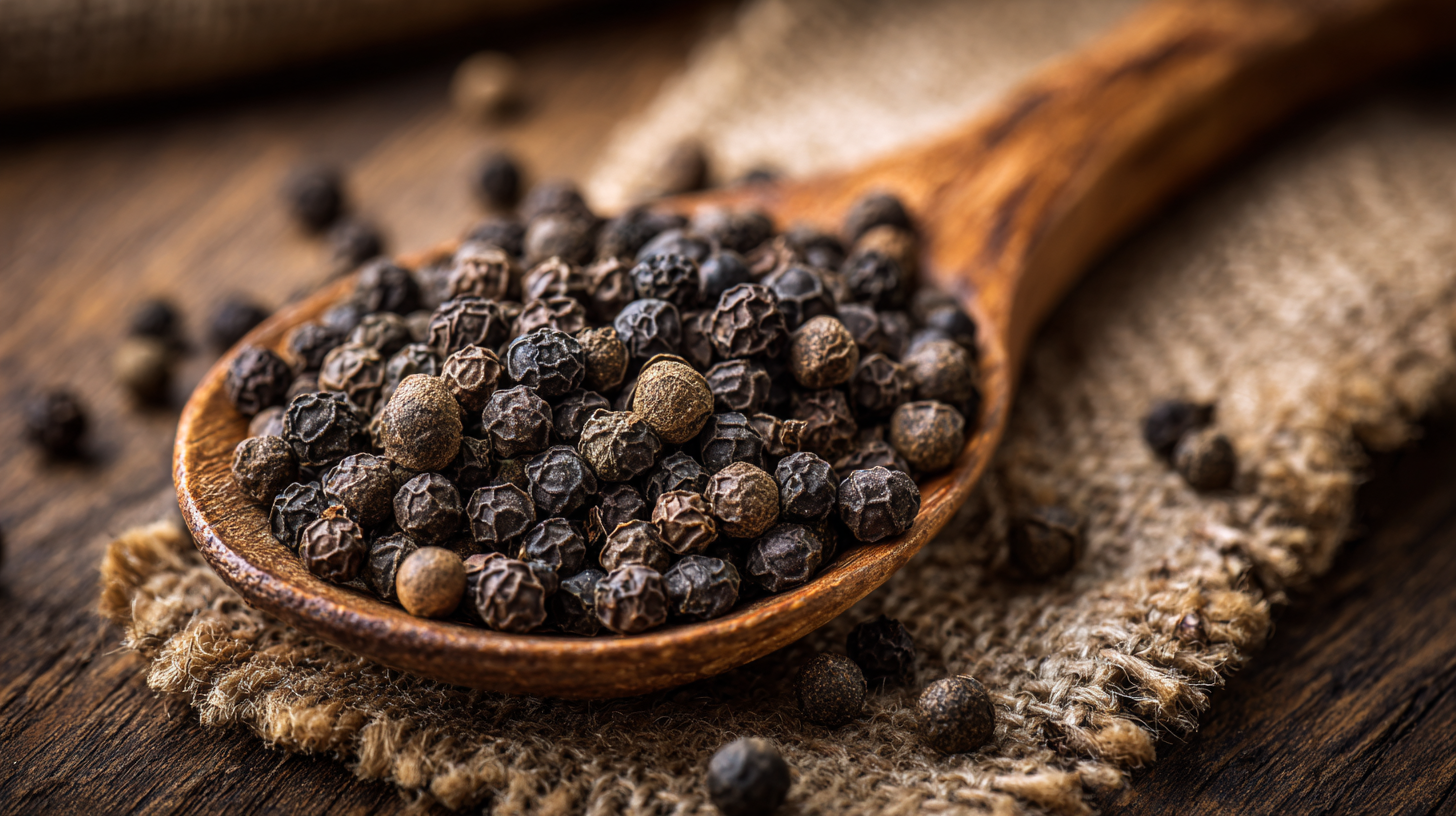 Black pepper, often dubbed the "king of spices", comes in various types that boast unique flavors and culinary applications. The most common varieties include Tellicherry, Malabar, and Sarawak. Tellicherry black pepper, harvested from the western coast of India, is known for its bold, complex flavor with hints of citrus, making it a favorite among chefs for gourmet dishes. According to the International Pepper Community, Tellicherry accounts for about 10% of India's total export, underscoring its premium status.
Black pepper, often dubbed the "king of spices", comes in various types that boast unique flavors and culinary applications. The most common varieties include Tellicherry, Malabar, and Sarawak. Tellicherry black pepper, harvested from the western coast of India, is known for its bold, complex flavor with hints of citrus, making it a favorite among chefs for gourmet dishes. According to the International Pepper Community, Tellicherry accounts for about 10% of India's total export, underscoring its premium status.
In contrast, Malabar black pepper is characterized by its earthy and slightly sweet flavor profile. Sourced from the southwestern coast of India, it is more commonly used in everyday cooking and commercial food products, contributing to its substantial market share. Sarawak black pepper, originating from Malaysia, offers a milder flavor, often used in Asian cuisine. A recent report by Market Research Future highlighted that black pepper varieties are gaining traction, projected to grow at a CAGR of 4.6% from 2022 to 2028, driven by an increasing demand for flavorful ingredients in food preparation.
Tips: When choosing black pepper, consider the dish you’re preparing. For rich, robust flavors, opt for Tellicherry, while Malabar is suitable for balanced seasoning in stews or marinades. Keep your black pepper whole until you're ready to use it; freshly ground pepper offers superior flavor and aroma.
When selecting black pepper, freshness is paramount to maximizing both flavor and health benefits. According to the American Spice Trade Association, spices can lose their potency within six months of packaging, making it crucial to check the harvest date when purchasing. Whole peppercorns retain their flavor and aroma far better than pre-ground options. Consider sourcing from suppliers who prioritize fresh harvests, as pepper that has been stored improperly can develop a stale taste.
In addition to checking the harvest date, assessing the appearance and aroma of black pepper is essential. High-quality black pepper should have a rich, deep color and a slightly glossy surface. When crushed or ground, it should release a strong, pungent aroma, indicating that the essential oils are intact. A study published in the Journal of Food Science noted that pepper varieties such as Tellicherry and Malabar are often recommended for their complex flavor profiles, due to their careful harvesting and processing methods. By prioritizing freshness and quality in your selection, you'll not only enhance your cooking but also incorporate the health benefits associated with this remarkable spice.
When it comes to enhancing the flavor of your dishes, the choice between ground and whole black pepper is crucial. Ground black pepper is convenient and readily available, making it an easy option for everyday cooking. Its fine texture allows it to easily blend with other ingredients, providing a quick burst of flavor that enhances sauces, dressings, and marinades. However, ground pepper can lose its potency and aromatic qualities over time, especially if not stored properly.
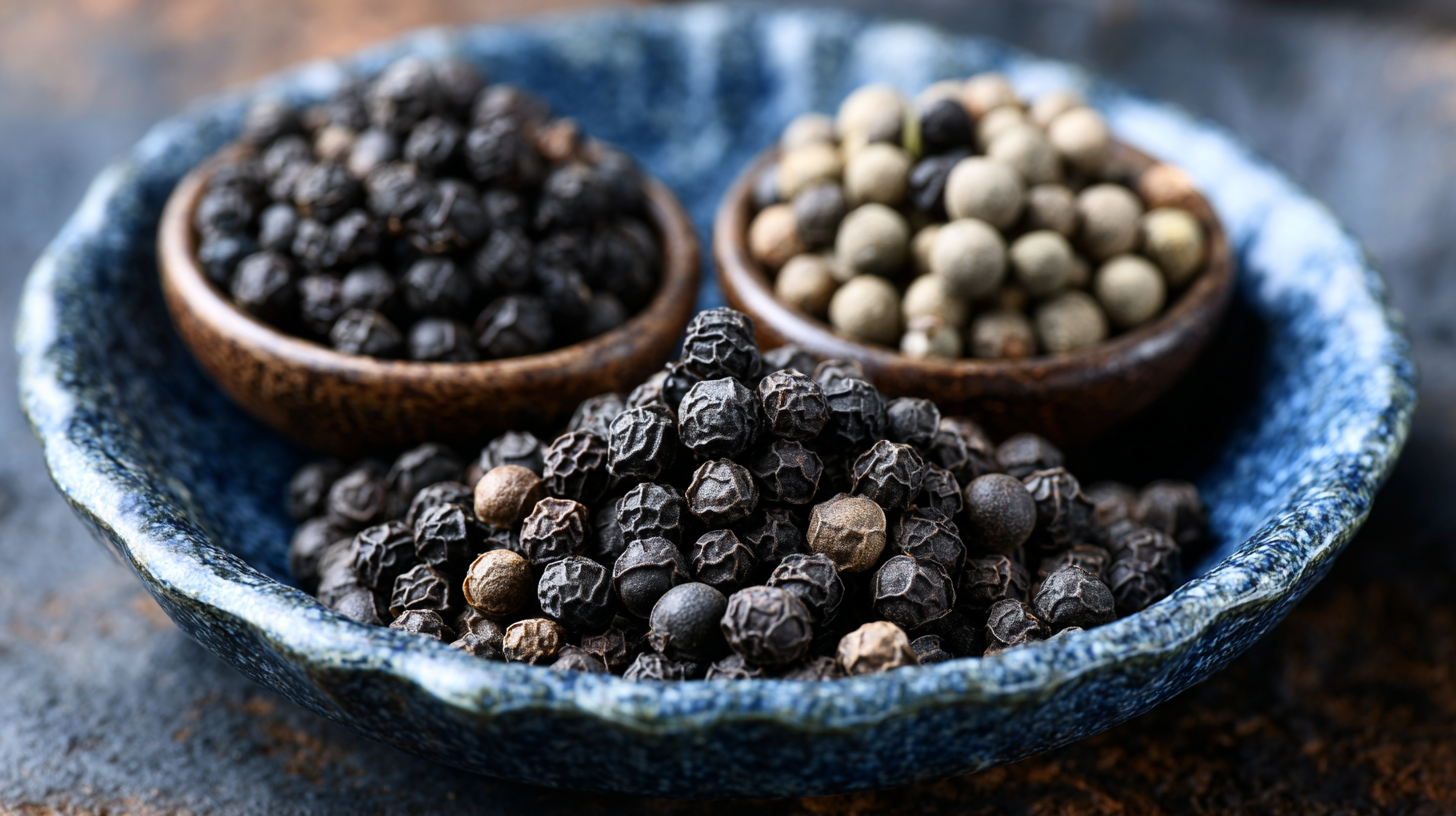
On the other hand, whole black peppercorns offer a fresher and more robust flavor profile. Grinding them just before use can release essential oils and unlock complex flavors that elevate your culinary creations. While using whole pepper may require a bit more effort—such as having a pepper mill or mortar and pestle—many chefs prefer it for the enhanced taste. For those who savor cooking and want to maximize their dishes' flavor, whole black pepper is often the better choice, as it allows for greater control over seasoning and results in a more aromatic experience.
When it comes to storing black pepper for maximum flavor and longevity, a few fundamental principles can make a significant difference. Black pepper should be kept in a cool, dark place, ideally in an airtight container to protect it from exposure to moisture and light. Studies have shown that whole peppercorns can retain their essential oils and vibrant flavor for up to three years when stored properly, while ground pepper tends to lose its potency within just a few months. Utilizing high-quality storage containers can further enhance its shelf life.
In addition to storage, grinding your black pepper just before use also plays a crucial role in maximizing flavor. According to culinary experts, freshly ground pepper offers a much more intense and aromatic experience compared to pre-ground varieties. This is because the essential oils are released at the moment of grinding, providing a burst of flavor that can elevate any dish. Therefore, investing in a reliable pepper grinder can not only enhance your cooking but also ensure that you reap the full benefits of this beloved spice for longer periods.
| Type of Black Pepper | Flavor Profile | Best Uses | Storage Method | Shelf Life |
|---|---|---|---|---|
| Malabar Pepper | Bold, slightly sweet | Grilling, marinades | Airtight container in a cool, dark place | 3-4 years |
| Tellicherry Pepper | Complex, fruity | Gourmet dishes, seasoning | Glass jar with a tight seal | 4-5 years |
| Smooth Cayenne | Warm, mild | Soups, stews | Cool cupboard away from light | 2-3 years |
| Lampong Pepper | Sharp, citrusy | Asian dishes, seafood | Sealed container in a pantry | 3-4 years |
When it comes to enhancing your culinary creations, black pepper is an indispensable spice that can elevate a dish’s flavor profile. Understanding how to pair black pepper with various cuisines can significantly enhance your dining experience. For instance, studies show that the pungency of black pepper complements the rich and savory notes found in dishes from Indian and Mediterranean cuisines. Combining black pepper with garlic and lemon in Mediterranean recipes can create a harmonious blend that accentuates the freshness of the ingredients.
**Tip:** Experiment with different forms of black pepper, such as whole or cracked, to discover how their flavor intensity can change the character of your dish. Coarsely cracked pepper adds a delightful texture, while finely ground pepper infuses a more uniform heat.
Additionally, certain types of black pepper, such as Tellicherry or Sarawak, offer unique flavor profiles that pair well with specific ingredients. Pairing Tellicherry black pepper with robust meats or earthy vegetables can enhance their natural flavors. Moreover, using freshly ground black pepper rather than pre-ground pepper ensures a more potent and aromatic addition to your cooking.
**Tip:** Invest in a good pepper mill to ensure your black pepper retains its flavor and aroma until you're ready to use it. This small change can make a noticeable difference in your dishes.
